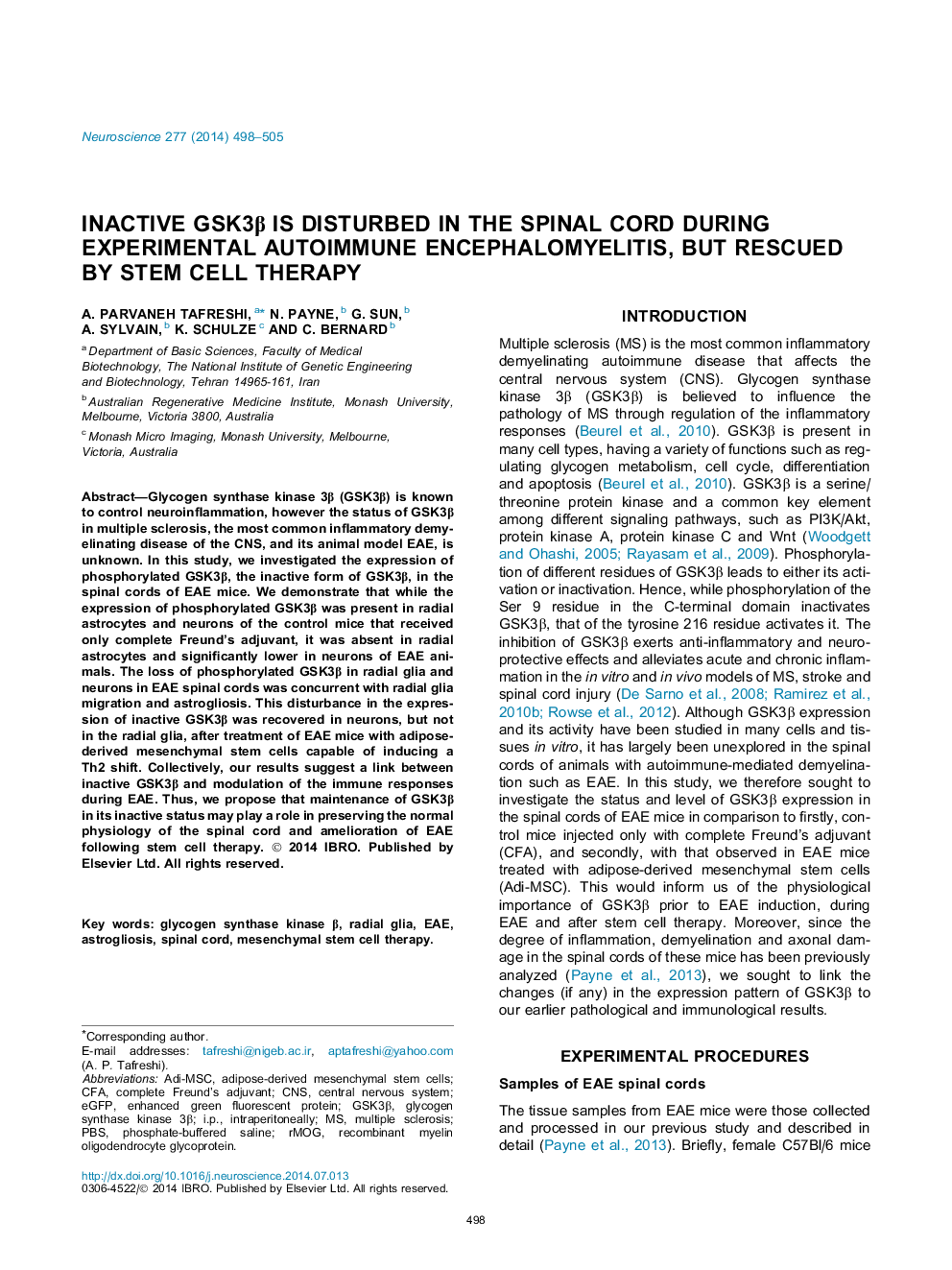| Article ID | Journal | Published Year | Pages | File Type |
|---|---|---|---|---|
| 6273681 | Neuroscience | 2014 | 8 Pages |
Abstract
Glycogen synthase kinase 3β (GSK3β) is known to control neuroinflammation, however the status of GSK3β in multiple sclerosis, the most common inflammatory demyelinating disease of the CNS, and its animal model EAE, is unknown. In this study, we investigated the expression of phosphorylated GSK3β, the inactive form of GSK3β, in the spinal cords of EAE mice. We demonstrate that while the expression of phosphorylated GSK3β was present in radial astrocytes and neurons of the control mice that received only complete Freund's adjuvant, it was absent in radial astrocytes and significantly lower in neurons of EAE animals. The loss of phosphorylated GSK3β in radial glia and neurons in EAE spinal cords was concurrent with radial glia migration and astrogliosis. This disturbance in the expression of inactive GSK3β was recovered in neurons, but not in the radial glia, after treatment of EAE mice with adipose-derived mesenchymal stem cells capable of inducing a Th2 shift. Collectively, our results suggest a link between inactive GSK3β and modulation of the immune responses during EAE. Thus, we propose that maintenance of GSK3β in its inactive status may play a role in preserving the normal physiology of the spinal cord and amelioration of EAE following stem cell therapy.
Keywords
Related Topics
Life Sciences
Neuroscience
Neuroscience (General)
Authors
A. Parvaneh Tafreshi, N. Payne, G. Sun, A. Sylvain, K. Schulze, C. Bernard,
